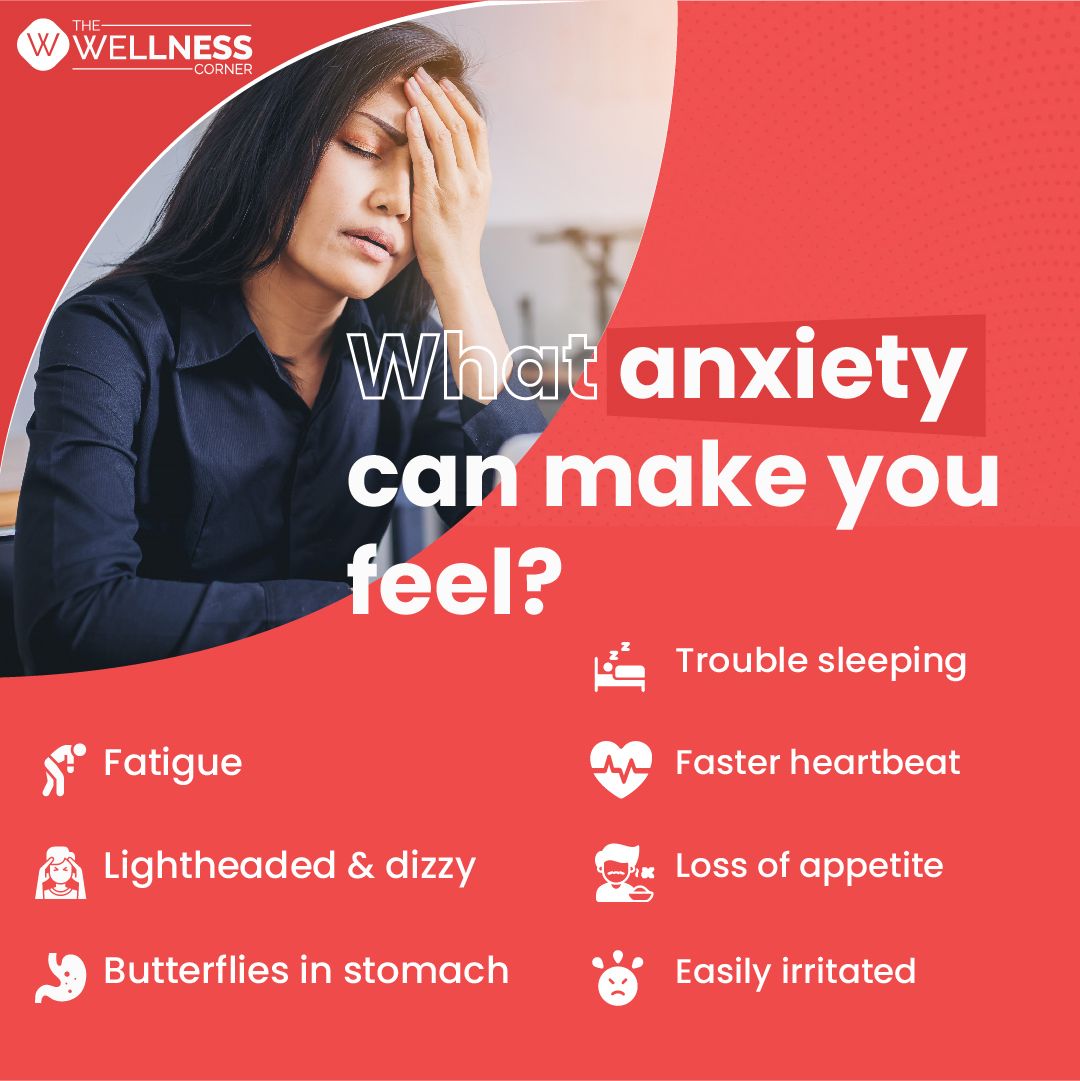Causes and Solutions for Feeling Hot From Anxiety
- 19 months ago
Anxiety is a complex and often misunderstood emotion. While it's associated with feelings of worry, unease, or fear, anxiety can show up in various physical ways as well. One of the more uncomfortable physical symptoms of anxiety is feeling hot.
Anxiety often makes individuals feel like they're burning up, mentally and physically. This internal heat can lead to sensations, such as sweating, feeling flushed or overheated, and experiencing a rapid heartbeat. The feeling of hot during an anxiety episode can be incredibly distressing, and it's crucial to understand that these physical symptoms.
In this blog, we'll delve into why anxiety can make you feel hot, the factors at play, and some strategies to manage this sensation.
Why Does Anxiety Make You Feel Hot?
Anxiety can make you feel hot or experience sensations of heat due to a complex interplay of physiological and psychological factors. Here's a breakdown of why anxiety might lead to feeling hot:
The Fight-or-Flight Response:
- Increased Blood Flow: The "fight-or-flight" response is an evolutionary survival mechanism that prepares your body to react to perceived threats. When you experience anxiety, your brain signals the release of stress hormones like adrenaline and cortisol. These hormones have various effects, one of which is to increase your heart rate and pump more blood to your muscles. This heightened blood flow to muscles helps you react quickly to danger, but it also raises your body temperature, making you feel hot.
- Muscle Tension: In preparation for physical action, your muscles may tense up. This muscular tension can generate additional heat within your body, adding to the sensation of warmth.
Also read: This is how yoga impacts your fight or flight response, according to science
Dilated Blood Vessels:
- Oxygen and Nutrient Delivery: Anxiety leads to the dilation (widening) of blood vessels, especially in the muscles and the skin. This dilation serves a crucial purpose: it allows for a rapid increase in blood flow to the muscles, delivering oxygen and nutrients to provide the energy needed for action. However, the increased blood flow near the skin's surface can make you feel flushed and warm.
- Thermoregulation: Your body's blood vessels also play a role in thermoregulation, the process of maintaining a stable body temperature. When blood vessels near the skin dilate, it can enhance heat dissipation, which is why you might feel warmer when anxious.

Psychological Factors:
- Hypervigilance: Anxiety often heightens your awareness of bodily sensations. You become acutely attuned to changes in your body, including any warmth or discomfort. This heightened awareness can magnify the sensation of feeling hot, making it more pronounced and distressing.
- Cognitive Processes: Anxiety can also trigger negative thought patterns and catastrophic thinking. When these thoughts are focused on physical sensations like warmth, they can intensify your perception of heat, making it feel even more uncomfortable.
Increased Metabolism:
Anxiety triggers a heightened state of alertness, and your body reacts by increasing its metabolism. This elevated metabolic rate is akin to revving up an engine, with the body burning more energy to prepare for potential exertion. As energy is expended, heat is generated as a byproduct, contributing to the feeling of warmth.
Sweating:
Sweating is a natural cooling mechanism. When you're anxious your body anticipates physical exertion, it starts sweating to cool you down. Sweat evaporating from your skin helps regulate your body temperature. However, this can lead to feelings of heat and discomfort, especially if the anxiety is intense.
Managing the Heat of Anxiety

Now that we understand why anxiety can make you feel hot, let's explore some strategies to manage this sensation:
- Deep Breathing: Practice breathing exercises to calm your body's response to anxiety. Slow, deep breaths can help regulate your heart rate, reduce sweating, and lower your body temperature.
- Progressive Muscle Relaxation: Tense and relax different muscle groups in your body. It can help dissipate the physical tension that often accompanies anxiety and may reduce the sensation of feeling hot.
- Stay Hydrated: Drinking water can help regulate your body temperature, especially when you are sweating due to anxiety.
- Cooling Techniques: Use cooling techniques like applying a cold compress to your forehead or the back of your neck to alleviate the sensation of heat.
- Identify Triggers: Understanding what triggers your anxiety can help you address the root cause of the issue. Therapy or counseling can be invaluable in this regard.
Also read: 6 natural ways to calm your anxiety

Conclusion
Feeling hot from anxiety is a common experience for many people. It's important to remember that anxiety is a natural response to stress and perceived threats, and the physical symptoms are a manifestation of your body's efforts to protect you. By understanding the physiological and psychological factors at play and implementing strategies to manage these symptoms, you can find relief and regain control over your anxiety. If anxiety continues to be a significant issue in your life, don't hesitate to seek professional help, as there are effective treatments available that can provide long-term relief.








